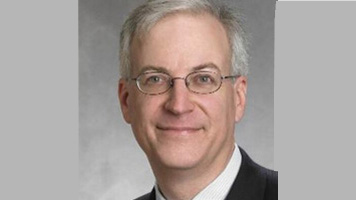Jessell | Political Ads A Small Price For Local TV News

 Tomorrow is Election Day. As we sit here today, we don’t know the outcomes of the many races and ballot issues, but we do know that it will bring an end to the political advertising that has increasingly clogged the airwaves for the past several months.
Tomorrow is Election Day. As we sit here today, we don’t know the outcomes of the many races and ballot issues, but we do know that it will bring an end to the political advertising that has increasingly clogged the airwaves for the past several months.
Viewers will be grateful to see the end of cheers, fears and smears that the spots promulgate, but broadcasters will not.
Political advertising is a large and growing source of revenue and there is no other ad category they can say that about.
Kantar Media calculates that broadcasters’ take this year will be $2.65 billion, up 26% from 2014, the comparable year in the four-year political cycle. On Wednesday morning, the broadcasters will lament again that the big windfall comes only every other year.
So, viewers may be sick of the ads, the mostly negative content and the sheer repetition of many of them, but the revenue they produce helps in a big way to sustain local TV news, which is vital to cities and towns, especially when a storm comes along or things go terribly wrong as they did here in Pittsburgh on Oct. 27.
Think about what millions of Americans will be doing tomorrow night. They will be tuning into one of their network-affiliated stations to watch the national story slowly unfold while tracking the local results.
They will be taken to the victory parties and concession speeches across their communities and the nation, they will watch as the House and Senate seats turn red or blue and they will learn by the end of the night whether Trumpism will be checked or further empowered.
Without the biennial infusion of political money, all this would be jeopardized. Remember, affiliates now help support the networks and what they do with big checks adding up to billions of dollars a year.
Political advertisers don’t place their ads on TV stations because they want to support what stations do. They do it because local TV news gathers large numbers of likely voters from across the political spectrum. It’s a great environment for the spots.
But, incidentally, in paying to reach those voters, the political advertisers do support what stations do. It’s really a wonderful example of invisible hand of the market in action. Everybody benefits, including the millions of citizens who depend on stations for credible news and information.
Unfortunately, such synergy was not enough for some.
Mostly Democratic lawmakers tried for years to force stations to set aside free or heavily discounted time for politicians, contribute to political advertising funds or to mandate substantive political coverage such as debates, extended interviews with candidate and issue-oriented stories.
In the minds of many of these free-time advocates, the only kind of coverage that mattered was political coverage. If stations were not diligently covering candidates and politics, they were not doing their jobs. To them, crime, accidents, human interest, sports and weather simply didn’t count.
Some of the more extreme proposals would have taxed stations 1% or 2% of their gross revenue and then funnel the proceeds to qualified candidates in the form of TV time vouchers.
The efforts were well meaning, I think. Proponents believed that if they could guarantee free TV for candidates in one way or another, they wouldn’t have to constantly beg for campaign funds, an inherently corrupting activity.
But others simply thought broadcasters were shirking their duty. That broadcasters were getting rich on the public airwaves without paying sufficient attention to politics and public affairs ran against their liberal grain.
These efforts heated up during the Clinton years, but had run out of the steam by the time Obama took office in 2008 after several measures that were part of a larger campaign finance reform movement ran aground in Congress.
The Alliance for Better Campaigns, run by one-time Washington Post reporter Paul Taylor, dedicated to improving political discourse in broadcasting, hung it up in 2005, merging into the Campaign Legal Center, which still does good work in fighting the Republicans’ voter suppression efforts, but no longer lists political advertising among its concerns.
The free-time movement petered out for a number of reasons.
The big one, of course, is that its proponents didn’t have sufficient political muscle. When unified, as they most often are, broadcasters led by the NAB are a mighty force. No less than the formidable late Sen. John McCain took on the broadcasters several times over this issue (and others) and always came up short.
In wasn’t all muscle. In these battles, broadcasters were backed by some strong arguments. They pointed out that stations’ record of covering candidates and campaigns was not as dismal as their critics made out.
The fact is, broadcaster do provide a lot of free time to candidates — voluntarily. As part of its efforts to head off free-time efforts, the NAB began tracking this years ago and each election season it turns up plenty of examples of town halls and debates sponsored or aired by stations. Some groups even commit to airing so much issue-oriented political news.
Incidentally, the NAB has found that many of the broadcasters’ invitations to host debates are declined for political reasons. Entrenched incumbents see no advantage in engaging challengers, particularly weak ones, in open debate. They have nothing to gain and a lot to lose.
Broadcasters also had the Constitution on their side. Mandates to air political news each week are a remarkable disregard of broadcasters’ First Amendment rights. The government cannot force broadcasters to air certain kinds of programming any more than it can forbid them to air certain kinds of programming.
I’m not concerned that the free-time movement will resurrect itself. The good-government types now seem focused, as they should be, on social media and the negative impact that has on the democratic process.
Maybe they have also figured out that forcing broadcasters to give away billions of free air time would not solve their real problem — out-of-control campaign financing.
In their desperate effort to stay competitive or get an edge, candidates will raise as much money as they can and, if they get broadcast time for free, they will just spend it elsewhere — digital, cable, rallies, billboards, direct mail, lapel pins, door hangers and bumper stickers.
I would also hope that the old free-time advocates have come to realize, as I have pointed out here many times, that all those political advertising dollars are supporting a somewhat fragile public good — local TV news.
So, this is a story of how well-meaning government regulation didn’t happen and how broadcasting and the public it serves are better off because it didn’t.
Personally, I would prefer never to watch another political ad, but if sitting through them (or more likely steering my DVR past them) is the price I must pay for election night coverage and all else that stations do, so be it.
Harry A. Jessell is editor of TVNewsCheck. He can be contacted at 973-701-1067 or here.
































Comments (3)
HopeUMakeit says:
November 5, 2018 at 9:02 am
if local news is so important ( it is) than congress should change the tax laws so that political income that is not invested in the TV market where it was generated should be taxed at a higher rate. All political income is usually gone from the market it was earned, by sundown. Then it becomes a tool for financing bigger and bigger monopolies or distributed to shareholders. Few station employee are meaningful shareholders and if they are, their votes have no power in the corporation. As a matter of fact, many employee share holders are scarred to vote against current management. I have never seen or heard a threat but I have always felt like some one was checking my votes. Also, you have to mention that about 50% of the U.S. ecomony’s advertising is sitting on preemption reports while “issue dollars” are treated the same as candidate dollars”
[email protected] says:
November 5, 2018 at 9:01 pm
I don’t get why no one sues for the lies, slander, defaming/smearing I would be suing if I was running for public office I wouldn’t take it who I was facing or 527’s I’d do it to prove a point. But that is why I wouldn’t ever run for public office don’t have thick skin for it plus I don’t want to go to public events etc.
I didn’t watch any of the debates Wood TV had the governor’s debate they put the second one on WXSP which took place in Detroit on Oct 24TH. CW7 sister station to WWMT aired congress debate also streaming on WWMT’s website didn’t watch that either since I already know who I’m voting for that one got very nasty from the ad’s but it’s already decided and likely to go to the congressmen who have been there for 30+ years. The challenger lied along with 527’s he should sue everything they have been saying about him is slander, smearing & defaming his good name which isn’t right plus the challenger has lied being a doctor/MD he doesn’t have a license to practice medicine which he admitted to.
WWMT had a report on it about a month ago I didn’t see said report only saw the ad from my congressmen which the report and question is legit about his MD/doctor status his last ad tries to prove he was MD/doctor with video from graduation & diploma he doesn’t say that I don’t have a license to practice medicine he’s clearly the liar all his ad’s are nothing but lies.
But glad that it is over tomorrow 21 hours to go no more political ad’s which is a good thing.
[email protected] says:
November 5, 2018 at 9:05 pm
I forgot about the funny part about the ad was that he only plays a doctor on TV which is very true.